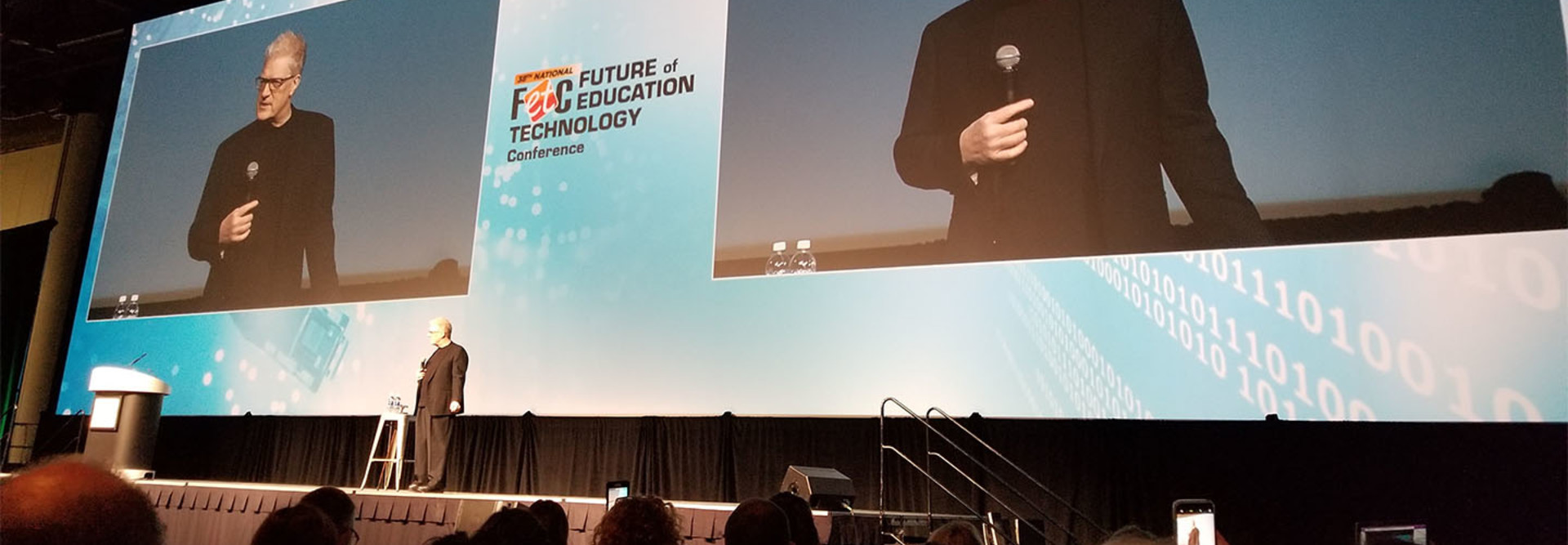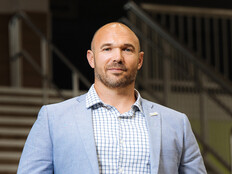FETC 2018: Sir Ken Robinson Urges Educators to Drop the Standardized Approach
Across the world, standardized testing has become such a crucial part of education that parents are scaling buildings and climbing through windows to help their children succeed.
Sir Ken Robinson, a noted thinker on innovation and creative thinking, who was knighted by Queen Elizabeth II for his services to the arts, cited the example of a school in Bihar, India, where parents climbed a school building to deliver cheat sheets to their children.
Inspiring, and often times, hilarious, Robinson urged attendees at the Future of Education Technology Conference’s opening keynote in Orlando, Fla., to think outside the culture of standardized education to better prepare students for the world, starting at the ground level.
“Textured, nuanced change doesn’t come from the top,” said Robinson, who is also a former educator.
SIGN UP: Get more news from the EdTech newsletter in your inbox every two weeks!
Technology Can Incite Change and Personalize Learning
Robinson, who visits schools frequently to discuss the importance of creativity in education, told the FETC 2018 crowd that he has seen a desire to change, sparked by our tech-savvy world, from teachers and administrators to parents and students.
Rather than continuing the process of “teaching to the test,” Robinson remarked that technologies at hand could truly empower educators to personalize the education experience for each individual student.
Interested in learning more on personalized education? Learn how some schools are using technology to change the standardized experience.
In his experiences, Robinson noted that children are largely impassioned by learning, but aren’t fond of schools. Using the technology that has changed the world, as well as emerging technologies, Robinson remarked that schools can offer a more dynamic experience with hands-on learning, collaboration and meaningful real-world problem-solving.
He cited MINDDRIVE, a nonprofit in Kansas City, Kansas that has helped students gain valuable experience by using both old and new technologies to restore cars.
“We can’t just [revolutionize] by improving the old model. We have to think differently,” said Robinson.
Check out more of EdTech’s coverage of FETC 2018 on our conference landing page.









